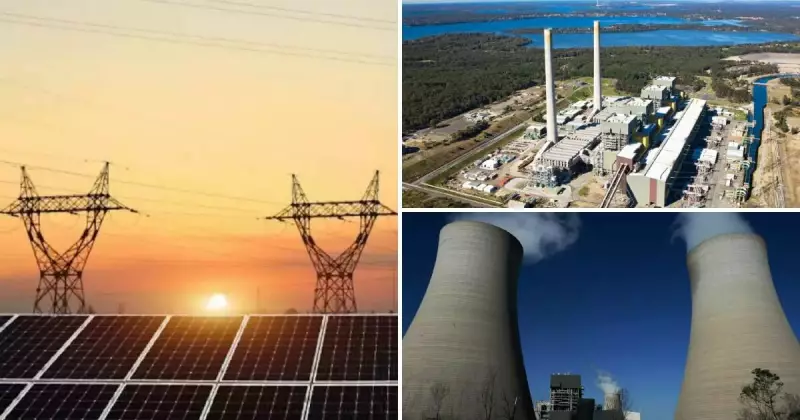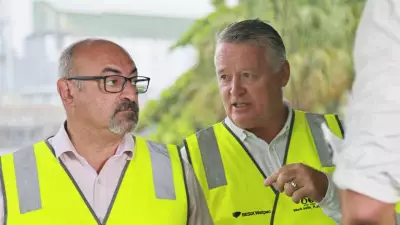
Corporate Australia Clashes with Coalition on Climate
Australia's energy sector has firmly rejected the federal Coalition's decision to abandon its net zero emissions target, with major companies like AGL publicly recommitting to their ambitious climate goals. This corporate stance creates a significant policy divide just days after the Opposition announced its dramatic shift, citing concerns about household costs.
Energy Giants Stand Firm on Decarbonisation
AGL Energy has confirmed it will maintain its target to achieve net zero emissions by 2050, directly contradicting the Coalition's new position. The company, which operates the Bayswater coal-fired power station in New South Wales, plans to close the facility by 2033 as part of its comprehensive climate strategy.
An AGL spokesman told the Newcastle Herald that ambitious targets remain crucial for providing clear direction. "We've also been consistent that ambitious targets are important and provide a clear direction for us all to work toward," the representative stated.
AGL Chief Executive Damien Nicks emphasized the company's proactive approach to the energy transition. "We're enhancing our targets, deepening our commitments, and demonstrating that we're not just planning for the transition - we're getting on with delivering it," Mr Nicks said recently.
Industry Body Backs Renewable Transition
The Australian Energy Council, representing more than a dozen major electricity suppliers including AGL, Origin Energy and EnergyAustralia, has thrown its weight behind the net zero goal. On Monday, the council reinforced its position that transitioning to a renewables-based grid represents the most cost-effective path forward for Australian consumers.
Council chief executive Louisa Kinnear stated: "The AEC supports the transition to net zero emissions by 2050 on the premise that the least cost, lowest impact pathway is an energy system dominated by renewables and firmed with battery storage, gas and pumped hydro."
Ms Kinnear acknowledged the significant challenges involved in transforming Australia's energy infrastructure. "Transitioning to an energy system dominated by renewables represents a fundamental shift in how energy is generated, transmitted and supplied to consumers," she explained.
The council emphasized that while renewable energy becomes cheaper once operational, the industry must account for construction costs and system adaptation. However, Ms Kinnear noted that this approach will still be cheaper than continuing to invest in existing or new coal fired power generation in the long term.
Policy Uncertainty Threatens Regional Transition
The Coalition's policy reversal, announced by Opposition Leader Sussan Ley on Sunday, includes dismantling Labor's climate targets, abolishing electric vehicle incentives, and potentially using taxpayer funds to extend the life of coal-fired power stations or support new construction.
This shift has raised concerns among climate advocates about its impact on Australia's industrial regions. Beyond Zero Emissions chief researcher Matt McKee described the Coalition's move as "anti-business and a direct threat to Australia's industrial regions and their economic futures."
Mr McKee pointed to regions like the Hunter in NSW and Gladstone in Queensland as areas already advancing decarbonisation efforts. "Customers demand it, investors require it, and the global economy is moving towards it. Australia cannot afford to fall behind," he warned.
The energy transition continues to accelerate despite political uncertainty. Origin Energy has brought forward the closure of its Eraring power station to 2027, while AGL has set a 2033 closure date for Bayswater. With most of Australia's ageing coal-fired power stations due to retire within the next decade, the corporate sector's commitment to renewables appears unwavering.
As Mr McKee concluded: "Australia's regions hold the key to a clean industrial future - but only if national policy meets the moment. They're forging ahead as leaders. Communities need confidence, not confusion."






